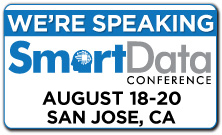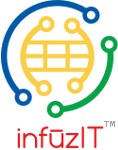-
(ISC)2 Security Congress
Keeping systems and data secure? We are on it!
We love sharing the results of our latest work, and the (ISC)2 Security Congress provides the perfect opportunity to do so. This annual gathering of top-notch security experts and vendor showcases can't be beaten for its depth of coverage and myriad opportunities for learning and networking.
This year at the (ISC)2 Security Congress we'll be presenting the results of our work combining honeypot sensor data and machine learning.
Our session is entitled, "Honeypots and Machine Learning: An Effective Security Tag Team." If you are curious about what we'll be covering, please read on.
Session Description
Honeypots have the ability to provide rich data sets that record attacker activity while collecting detailed information about their system interactions. Machine learning leverages predictive analytics to identify models within large data sets. In this session, we will discuss the results of combining these two techniques to automate the search for attacks.
Security automation may be enhanced through the use of honeypots and machine learning techniques. However, there is work to be done to create a useful monitoring platform. Challenges include real-time normalization of diverse data sets, feature identification, model implementation, as well as concept drift leading to stale models. We will discuss these challenges as well as approaches for addressing them in the context of typical honeypot and machine learning environments.
-
SmartData Conference
Data technologies of all sorts? We are there!
We wouldn't miss a great opportunity to talk about data, integration, storage, clustering, sharding and much more. The SmartData conference brings together many different data experts and technologies and allows us to gain and share insights across industries, technologies and countries.
 This year at the SmartData Conference we'll be running a hands-on workshop on data integration using semantics and NoSQL.
This year at the SmartData Conference we'll be running a hands-on workshop on data integration using semantics and NoSQL.
Our session is entitled, "Integrating and Analyzing Data Using Semantics and NoSQL." If you are curious about what we'll be doing in the workshop, read on.
Session Description
Semantic technology's graph-based paradigm allows it to easily federate and integrate disparate data. NoSQL platforms support agile data representations and powerful analytic capabilities. Together a data pipeline may be assembled which benefits from the strengths of each platform. The semantic reasoner simplifies data integration and the NoSQL environment promotes an ease of querying and aggregation. These platforms may be leveraged to accelerate data-centric projects such as:
- Analytics and Predictive Modeling
- Data Aggregation
- Strategic Reporting
- Data Quality Improvement
In this tutorial we use semantic and NoSQL document technologies to facilitate data integration and federation, deriving an analytically-focused data set, in an agile fashion.
We start with an enterprise data model consisting of several data sources representing an insurance company's policy and claim systems. We will create a target ontology and use the graph and reasoner to federate the data into that ontology, creating a common model. That model will feed a NoSQL document store. We will then leverage the aggregation capabilities (such as MapReduce) of the document store to analyze the federated data. We will also see how other analytic environments, such as the R platform, may leverage the data housed in the NoSQL document store in order to build predictive models.
Specific experience attendees will gain during the workshop:
- Acquire hands-on experience with several semantic tools
- Acquire hands-on experience with a NoSQL document store
- Gain an understanding of data federation in the context of semantic technology
- Leverage the capabilities of semantics to derive federated JSON documents
- Build reporting pipelines from a NoSQL document store
-
Continuous Learning
Opportunities abound to invest in your knowledge portfolio
Vendors, trade groups, researchers, schools offer us a chance to learn about the evolving data landscape. Here are some options we are aware of. If you know of something that should be added please use our contact page to clue us in.
edX Hosted Courses
 edX hosts several database-related courses from schools like Berkley and Columbia. Check out their course listings at https://www.edx.org/. Some of their interesting database courses are Big Data in Education, Introduction to Computational Thinking and Data Science and an excellent course for advancing big data analytics, Introduction to Big Data with Apache Spark.
edX hosts several database-related courses from schools like Berkley and Columbia. Check out their course listings at https://www.edx.org/. Some of their interesting database courses are Big Data in Education, Introduction to Computational Thinking and Data Science and an excellent course for advancing big data analytics, Introduction to Big Data with Apache Spark.MongoDB Courses
MongoDB, through their Mongo University Program, offers a variety of free courses for developers and data administrators. We've enjoyed taking these courses, especially because they are focused on specific platforms and provide hands-on opportunities to use MongoDB with your preferred development environment. read more
Stanford Online
Stanford University has offered a set of MOOCs covering database technology and data modeling. Check out their site to see the available courses and information on class schedules. read more

